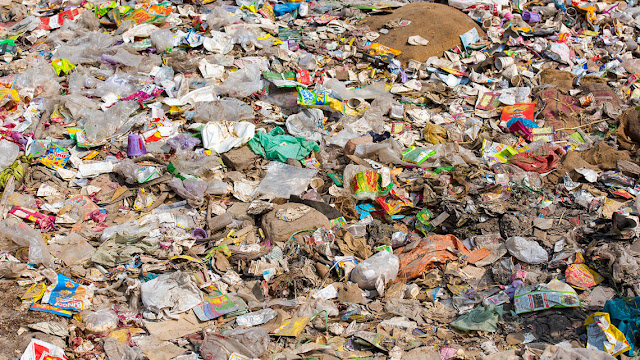In a New York Times article today, the focus is on a new trade deal with Kenya that the oil industry is pushing hard to get. The oil sector is under enormous economic pressures from low profits and growing social concerns about the environment generally, including awareness of the severity of increasing plastic waste problems. Plastics are profitable and both big oil and chemical companies want to make and sell a lot more plastics than they are now.
In response to the economic pressure, the oil sector has decided to try to force Africa to open itself up as a great place to dump hundreds of millions of tons of plastic waste. The oil and chemical (plastics) sectors have formed a trade group, the Alliance to End Plastic Waste, to deal with the massive and growing plastic waste problem. The solution is to dump the waste in Africa. The companies behind that lobby power include Exxon, Chevron and Dow. The group is lobbying US trade negotiators to demand a reversal of the Kenya’s strict limits on plastics. The NYT writes:
“According to documents reviewed by The New York Times, an industry group representing the world’s largest chemical makers and fossil fuel companies is lobbying to influence United States trade negotiations with Kenya, one of Africa’s biggest economies, to reverse its strict limits on plastics — including a tough plastic-bag ban. It is also pressing for Kenya to continue importing foreign plastic garbage, a practice it has pledged to limit.
Plastics makers are looking well beyond Kenya’s borders. “We anticipate that Kenya could serve in the future as a hub for supplying U.S.-made chemicals and plastics to other markets in Africa through this trade agreement,” Ed Brzytwa, the director of international trade for the American Chemistry Council, wrote in an April 28 letter to the Office of the United States Trade Representative.
The United States and Kenya are in the midst of trade negotiations and the Kenyan president, Uhuru Kenyatta, has made clear he is eager to strike a deal. But the behind-the-scenes lobbying by the petroleum companies has spread concern among environmental groups in Kenya and beyond that have been working to reduce both plastic use and waste.
Kenya, like many countries, has wrestled with the proliferation of plastic. It passed a stringent law against plastic bags in 2017, and last year was one of many nations around the world that signed on to a global agreement to stop importing plastic waste — a pact strongly opposed by the chemical industry.
The plastics proposal reflects an oil industry contemplating its inevitable decline as the world fights climate change. Profits are plunging amid the coronavirus pandemic, and the industry is fearful that climate change will force the world to retreat from burning fossil fuels. Producers are scrambling to find new uses for an oversupply of oil and gas. Wind and solar power are becoming increasingly affordable, and governments are weighing new policies to fight climate change by reducing the burning of fossil fuels.
Pivoting to plastics, the industry has spent more than $200 billion on chemical and manufacturing plants in the United States over the past decade. But the United States already consumes as much as 16 times more plastic than many poor nations, and a backlash against single-use plastics has made it tougher to sell more at home.”
The NYT article goes on to note that American exporters shipped more than 1 billion pounds of plastic waste to 96 countries including Kenya in 2019. In theory the waste was to be recycled, but much of the waste is not recyclable and it ends up in rivers and oceans. China closed its ports to most plastic trash in 2018. Since then, exporters have been looking for new dumping grounds and Africa looks to be the best place.
The NYT article makes this critically important point: The plastics industry’s pro-waste dumping proposals would make it hard to regulate plastics in the United States. That is because the trade deal under negotiation applies to both sides.
In March of 2019, a recycling trade group executive wrote to federal officials including trade negotiators to show them a recent useful statement by environmental activists. The executive wrote: “Hey ladies. This gives us some good fodder to build a strategy.” The chemical industry rationale to oppose bans on plastic waste exports is that they prevent recycling of what plastic there is that is recyclable.

The Alliance to End Plastic Waste hates mandatory recycling in Kenya and everywhere else --
the NYT writes: “Kenya’s efforts to restrict plastics and encourage re-use are worrisome for plastics makers, whose leaders see the country as a promising market”
-- Specifically, what is worrisome is the threat to profits that recycling constitutes





















